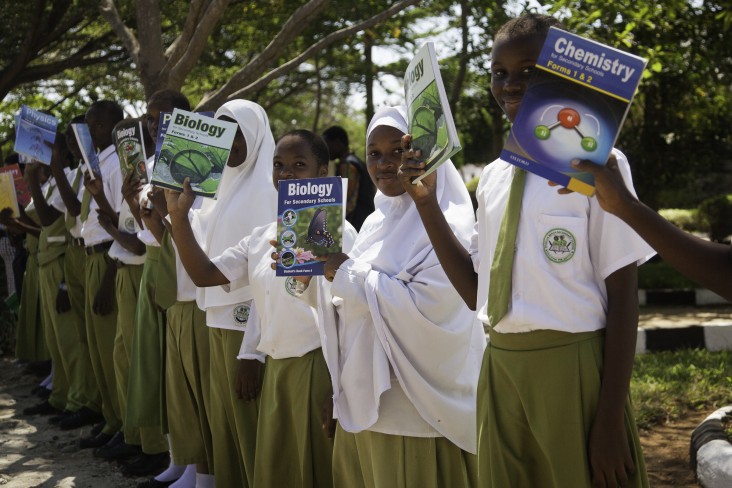
Tanzanian women and girls remain among the most marginalized and underutilized citizens in sub-Saharan Africa. Enabling gender equality and empowering women are critical to advancing progress and growth in Tanzania. Tanzanian women and girls must have greater access to and control over resources, opportunities, and decision-making power in order to sustainably reduce extreme poverty, build healthy communities, and promote inclusive growth.
USAID/Tanzania’s Gender Equality and Youth Inclusion Project, or Tumaini (“Hope” in Kiswahili), serves to incorporate gender equality, women’s empowerment, and youth inclusion across a broad range of programs. These efforts focus on strengthening women- and youth-friendly policies at the national level, working with communities and local government to increase women’s equality and youth inclusion, and ensuring that Tanzanian women and youth are healthier and more productive.
Let Girls Learn
Tanzania is one of two initial priority countries under Let Girls Learn, a whole-of-government initiative to improve enrollment and retention in educational programs for female adolescents. While primary school enrollment among girls and boys is nearly equivalent in Tanzania, less than 20 percent of women age 20-24 have completed secondary school and 20 percent have had no education at all.
In 2015, USAID and the Department of State launched the Let Girls Learn Challenge Fund, a $25 million investment bringing stakeholders together to collectively design and pilot new programs in Tanzania and Malawi. Since that time, the Waache Wasome (Let Them Learn) program has been launched, with the goal of increasing access to quality education for adolescent girls aged 13-19 and improving community perceptions about the value of educating girls in select districts of the Arusha and Mara regions.
USAID/Tanzania signed a Memorandum of Cooperation on the Let Girls Learn initiative with Global Affairs Canada, committing both donor agencies to work together to advance access to quality education, foster an enabling environment for adolescent girls’ education, and equip girls to be agents of change.








Comment
Make a general inquiry or suggest an improvement.